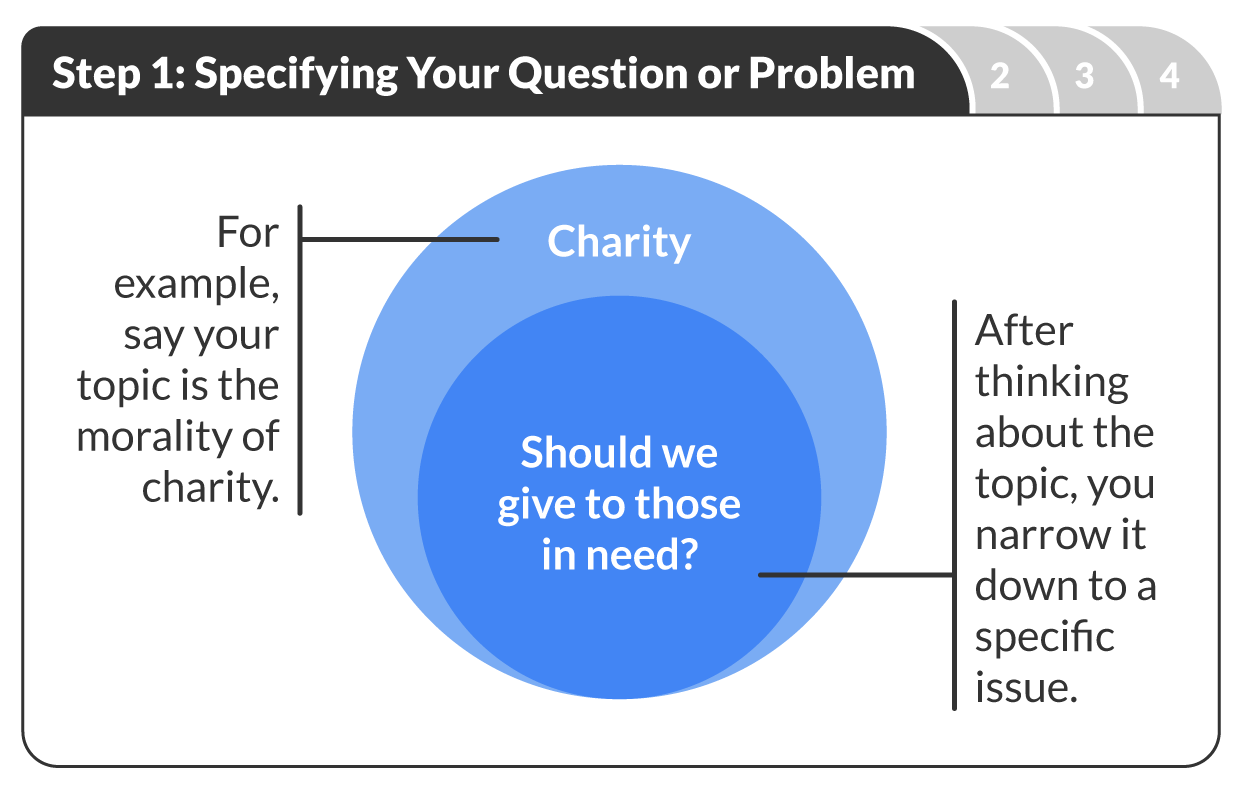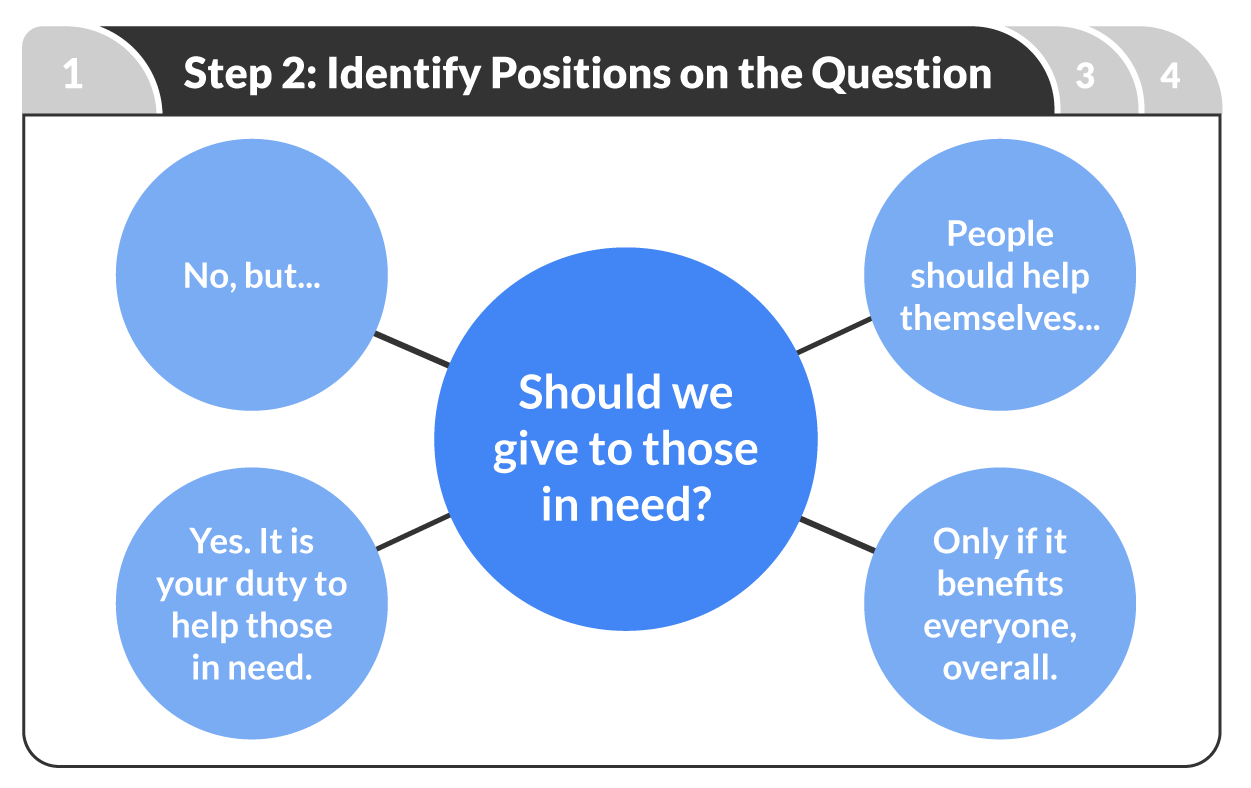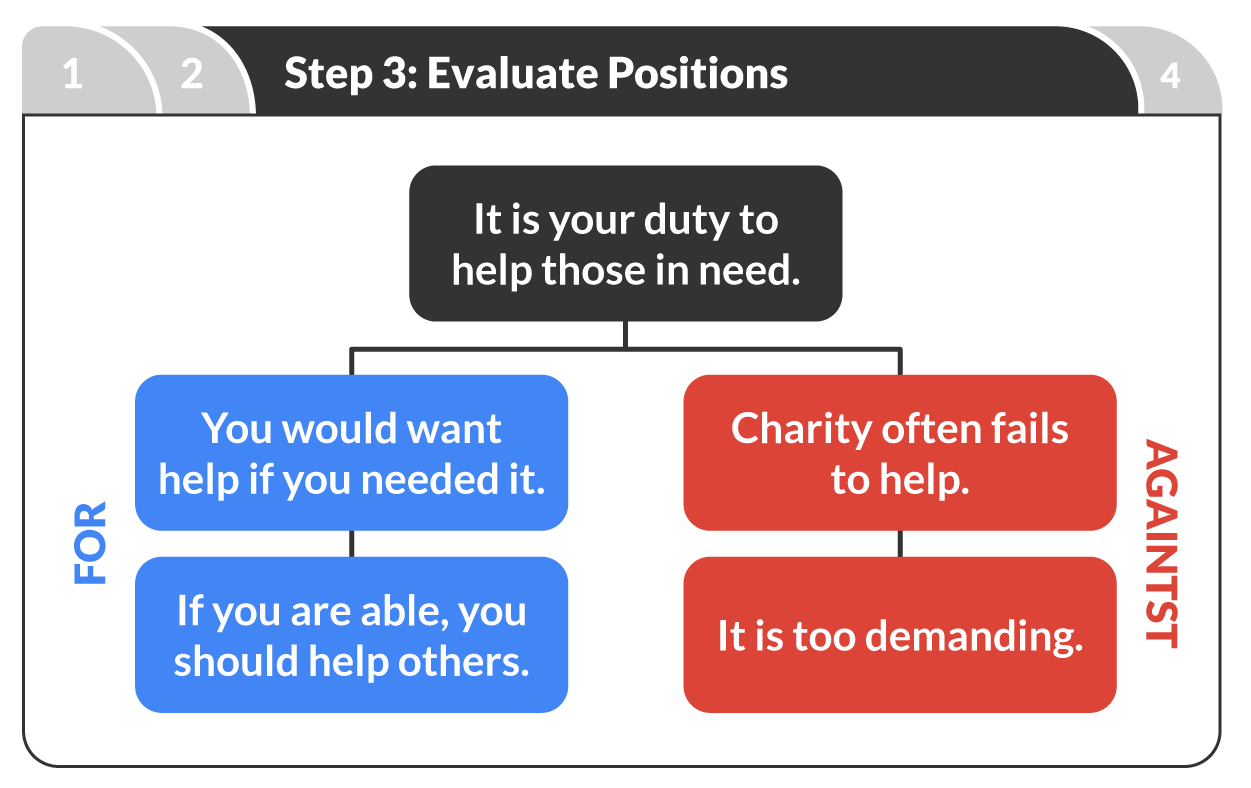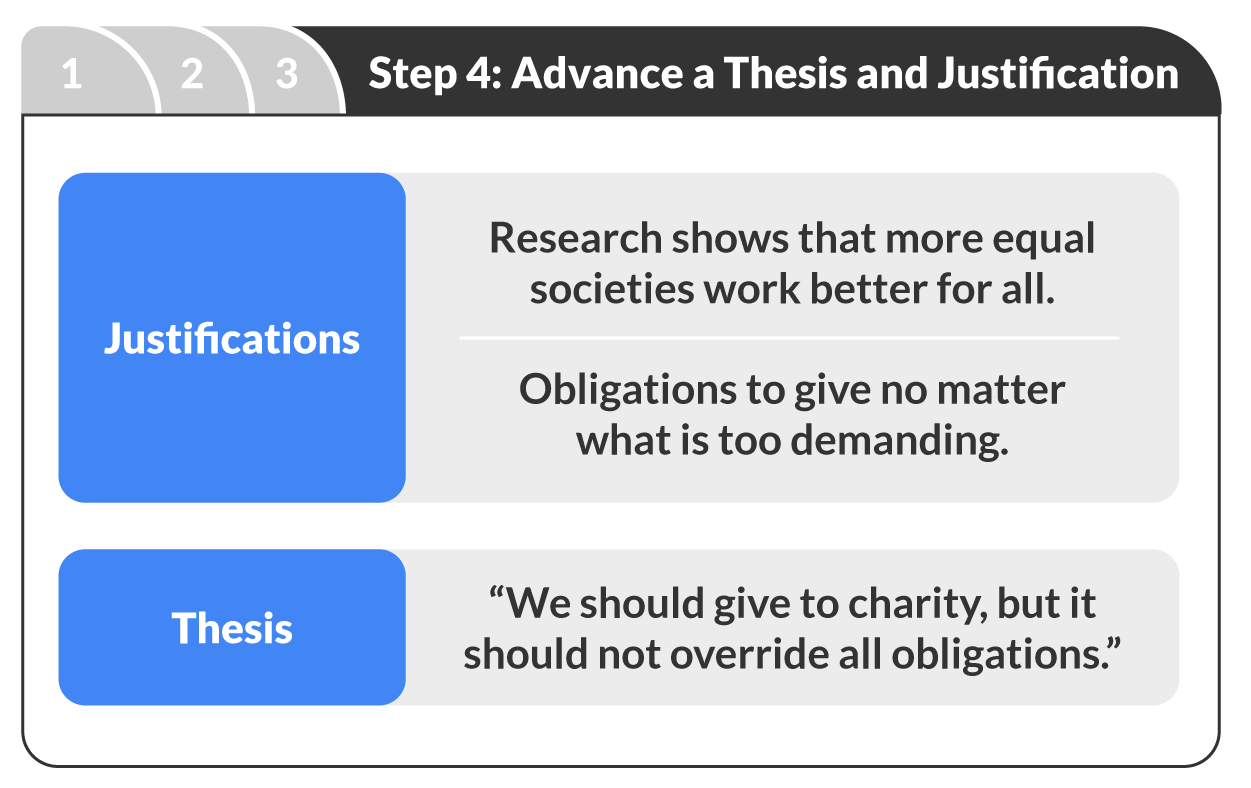Table of Contents |
In order to arrive at your own considered view about a philosophical issue, you first need to think about the topic under consideration and specify the precise question or problem you want to address. See the example in the illustration below.

This provides the focus you need to pursue a productive philosophical inquiry.
Now you can investigate what other people have already said about it. It is helpful to list many philosophers’ positions on this question before you decide which ones to tackle. See the examples in the illustration below.

You should then think critically about what has been said by others, weighing up the strengths and weaknesses of their position. Consider the example given in the illustration below.

The type of support you give for or against a position can be of different kinds.
EXAMPLE
It may be that you cite research that shows charity often fails to help because of inefficient systems. Perhaps you found some convincing arguments by various philosophers that state, "If you are able, you should help others." And maybe you think the reason why we should give to charity is because you find it intuitively plausible to think that you would want to be helped if you needed it.Finally, you need to take a position on the issue and give justifications for why this is the correct position to take. In other words, you should advance a thesis with some supporting arguments or evidence, as shown below.

Notice that the first and second justification pull in slightly different directions. The first seems to be a straightforward endorsement of charity, while the second seems to place doubts on it.
But what is doubted is only the belief that charity is the most important or binding moral commitment we have. The worry with this belief is that, if charity comes above all other obligations, then it might take over our lives (e.g., We would not be able to buy a home because there are those that need food first).
Therefore, you can hold that we ought to give to charity, but add that this is not an obligation above all others. In this way, you would have firmly established a thesis whilst taking varying ideas into account.